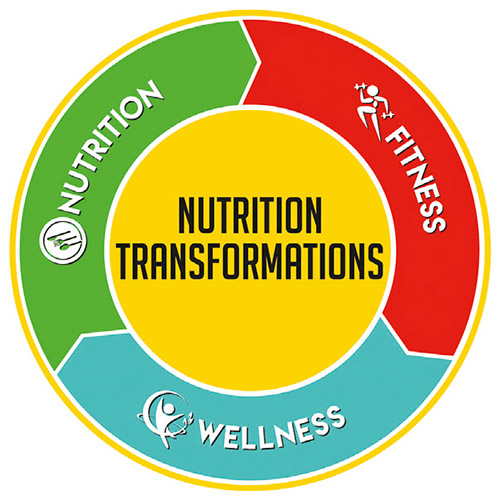
Dear Jenn,
My doctor told me my kidneys are not functioning normally due to my diabetes. I have to lose weight, reduce my blood sugar and control my potassium intake. I’m told potassium is in most Passover foods! If that’s true, what should I do?
Sincerely,
Desperate for Diet!
Dear Desperate for Diet,
Your doctor is warning you to start paying attention to your declining health. Diabetes is a serious condition but can be controlled by diet, medication and a healthy lifestyle. Passover, like other Jewish holidays, is an opportunity for diet breakdown. Get a grip by making your health a priority.
Definition of Diabetes
A disease in which the body’s ability to produce or respond to the hormone insulin is impaired, resulting in abnormal metabolism of carbohydrates and elevated levels of glucose in the blood and urine.
Long-Term Outcome of Uncontrollable Diabetes:
Heart disease—cardiac disease.
Kidney damage—nephropathy.
Eye damage—retinopathy.
Nerve damage—neuropathy.
Limb amputation—damaged blood vessels.
Stroke—cerebral vascular accident.
Breaking It Down: The “Passover Emergency Diet” case, above, has more than one issue of concern. Let’s discuss and resolve each.
Weight
In my previous columns “Holiday Weight Gain Blues Mama,” “Searching for Weight Loss Solutions” and “Shabbat Over-Eaters,” I suggest minimizing salt, sugar and unhealthy caloric cooking sauces. Cook with healthy fats, natural or low-sugar fruit juices, herbs, spices and lean proteins. Control portion sizes and daily calories. Start meals with a fresh vegetable salad drizzled with dressing, and conclude meals with fresh fruit. Practice mindful eating by savoring your foods and letting the stomach and brain synchronize. Concentrate on table conversation and avoid second helpings. Remember the “Rule of One.”
Make time for exercise to burn off calories. (Take a walk on Yom Tov!)
“Center” your emotions with stress-reduction activities.
Consume adequate fluids for proper hydration, to feel energized and to help weight control.
Get enough sleep and rest to avoid cravings.
Carbohydrates and Sugar Intake
In my column “Very Concerned Pre-Diabetic Mom,” I stressed that the key to blood sugar control is selecting and consuming healthy carbohydrates and portion size control.
Avoid high-sugar candies, cake, cookies, regular sodas and soft drinks. * Read Labels: purchase products with under 12 grams of sugar.
Consume whole wheat or bran products –including matzoh higher in fiber.
Kitniyot food products are good sources of fibrous carbohydrates that are low in sugar but vary in potassium.
Refer to the Diabetic Exchange List for portion size control; use for Passover meal planning.
Most matzah squares are about 120-plus calories (unless low-calorie variety: 110 calories per square). One half a regular matzah equals 1 slice of bread or 1 bread exchange. (1 whole square matzah equals 2 slices of bread or 2 bread exchanges.)
2 small matzah balls are approximately 100 calories, equal to half a matzah or 1 bread exchange.
For diabetic control:
Consume no more than 4-6 bread exchanges daily.
Consume 2-3 fresh fruits or unsweetened canned /frozen fruits daily.
Kidney Function
The kidneys have multiple functions. They remove waste and regulate certain electrolytes in the blood. In our current “Passover Emergency Diet” case, a reduction in potassium is necessary due to loss of kidney function. If kidney function is compromised, potassium levels rise, and can result in serious side effects.
When monitoring potassium intake, consider Three Potassium Food Groups:
Low-potassium foods: 150 mg per portion
Medium-potassium foods: 151-250 mg per portion
High-potassium foods: 251 mg and above.
“Beyond Bananas” by the American Kidney Fund is a potassium food guide. This online source is easy to use, informative and a tool for people who must control potassium intake. Visit https://kitchen.kidneyfund.org/potassium/.
In the Beyond Bananas source, turkey, a lean, healthy protein, is high in potassium, where roast beef and lean ground beef are low in potassium. Rice (permitted for Sephardim over Passover) is low in potassium, while potato (an Ashkenazi staple over Passover) is high in potassium.
Walnuts (used for charoset) are low in potassium.
Eggs and cheese are low in potassium.
Pineapple is low in potassium. Apples (used for charoset) are medium in potassium and yes, bananas are high in potassium.
Most table wine contains between 150-187 mg potassium. Keep in mind sweet wine is higher in sugar compared to dry wine, a better choice for the diabetic person.
Conclusion
Medical conditions such as diabetes require tight control of diet along with regular exercise and possibly medication. Figuring out individual nutrient requirements such as calories, carbohydrates, proteins and potassium can be mind-boggling. If you and/or a family member require help to develop a personalized diet plan, reach out to Nutrition Transformations. We are experts in personalized, therapeutic diet planning and menu development. We will help control and improve your medical condition. Give us a call—let’s take care of you!
Yours in good health,
Jenn
718-644-1387
Stay tuned to our April blog coming out soon!













